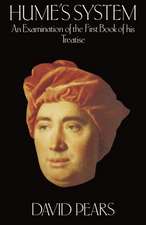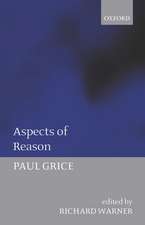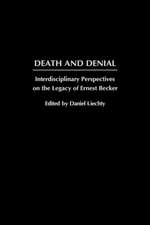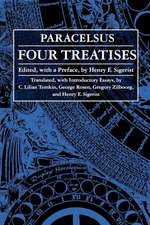Abelard in Four Dimensions – A Twelfth–Century Philosopher in His Context and Ours: Conway Lectures in Medieval Studies
Autor John Marenbonen Limba Engleză Paperback – 29 noi 2013
This volume is a critical edition, with English translation and commentary, of a hitherto-unpublished Italian text that McNamer argues is likely to be the original version of this influential masterpiece. Livelier and far more compact than the Latin text, the Italian "short text" possesses a stylistic and textual integrity that appears to testify to its primacy among early versions of the Meditations. The evidence also suggests that it was composed by a woman, a Poor Clare from Pisa-an author whose work McNamer contends was obscured by the anonymous Franciscan friar who subsequently altered and expanded the text. In bringing to light this unique Italian version and building a case for its origins and importance, this book will encourage a fresh look at the Meditations and serve as a foundation for further scholarship and debate concerning some of the most compelling subjects in Italian and European literary and cultural history, including the role of women in the invention of new genres and spiritual practices, the early development of Italian prose narrative, the rise of vernacular theology, and the history of emotion.
McNamer's volume will be of significant interest to medievalists, especially those who study medieval women, devotional literature, manuscript studies, and textual criticism. The linguistic analysis expands that audience to include those of a philological bent.
| Toate formatele și edițiile | Preț | Express |
|---|---|---|
| Paperback (1) | 245.05 lei 6-8 săpt. | |
| MR – University of Notre Dame Press – 29 noi 2013 | 245.05 lei 6-8 săpt. | |
| Hardback (1) | 591.91 lei 6-8 săpt. | |
| MR – University of Notre Dame Press – 14 ian 2022 | 591.91 lei 6-8 săpt. |
Preț: 245.05 lei
Nou
Puncte Express: 368
Preț estimativ în valută:
46.90€ • 50.92$ • 39.39£
46.90€ • 50.92$ • 39.39£
Carte tipărită la comandă
Livrare economică 23 aprilie-07 mai
Preluare comenzi: 021 569.72.76
Specificații
ISBN-13: 9780268035303
ISBN-10: 026803530X
Pagini: 296
Dimensiuni: 152 x 227 x 21 mm
Greutate: 0.45 kg
Ediția:1st Edition
Editura: MR – University of Notre Dame Press
Seria Conway Lectures in Medieval Studies
ISBN-10: 026803530X
Pagini: 296
Dimensiuni: 152 x 227 x 21 mm
Greutate: 0.45 kg
Ediția:1st Edition
Editura: MR – University of Notre Dame Press
Seria Conway Lectures in Medieval Studies
Recenzii
"This searching, thorough, and original study examines Abelard's past, present, and future, and our present. John Marenbon offers the best enquiry yet made into the sequence of Abelard's writings and their chronology, followed by an incisive and highly illuminating account of the various, successive formulations of his 'unpopular argument' to the effect that God cannot do otherwise than as he does. This is an accomplished work which will be eagerly read and hugely appreciated by students and their teachers on courses of philosophy, theology, and history." —David Luscombe, University of Sheffield
"Marenbon (Cambridge University), an important scholar of medieval philosophy, here returns to a topic that occupied him some years ago: the philosophy of Peter Abelard. Rather than serving as a general treatment of Abelard's philosophy, this book focuses on four different ways of reading the philosopher: in terms of his predecessors, his contemporaries, and his historical influence, and in terms of contemporary philosophy. This volume . . . will not disappoint. It should prove useful to students of Peter Abelard and of medieval thought more generally." —Choice
"As a volume of Conway lectures, it is a worthy peer to sit alongside the recent contributions of Rosamund McKitterick, Jonathan Riley Smith, A. C. Spearing, and Barbara Newman. I hope this book will reach a wider audience of medievalists than only philosophers, theologians, and twelfth-century specialists (for whom it will be indispensable), if only for the tentative but convincing answer Marenbon provides to the immediately pressing question of the relevance of medieval studies." —Speculum
“In this book, John Marenbon takes on select issues from Abelard’s philosophy and theology that have proven to be problematic. These he submits to close examination, hewing his own path in submitting these topics to careful scrutiny, never coming to easy conclusions, but offering original insights. For audiences responsive to Marenbon’s approach his book offers value.” —Mediaevistik
“Much of what is explored here is explored with clarity, care, and judgment. In an important sense Marenbon proves the thesis of the book: that historical understanding and background helpfully informs attempts to see in thinkers from another era versions of contemporary theories and can prevent misreadings of many kinds.” —Journal of the History of Philosophy
"Abelard in Four Dimensions is an excellent introduction to the study of Peter Abelard. The 'four dimensions' in the title refer to future, past, and present—Abelard's and our own. . . . In his conclusion, Marenbon reflects intelligently on how best to bring medieval thinkers into the contemporary discussion: not by distortion, forcing medieval ideas into 'a conceptual framework where they do not belong,' but by asking ourselves not only how they resemble modern positions, but also how the problems addressed differ from those today's philosophers pose." —The Medieval Review
“Throughout this book, but especially in its conclusion, Marenbon steps back and reflects upon methodologies of historians of philosophy. [Marenbon] has identified some weighty issues that any historian of philosophy must address, and one would be well advised to read Marenbon’s thoughtful remarks on this subject.” —Vivarium
Notă biografică
John Marenbon is senior research fellow at Trinity College, Cambridge, and honorary professor of medieval philosophy in the University of Cambridge. He is the author of The Philosophy of Peter Abelard.
Descriere
Abelard in Four Dimensions: A Twelfth-Century Philosopher in His Context and Ours by John Marenbon, one of the leading scholars of medieval philosophy and a specialist on Abelard's thought, originated from a set of lectures in the distinguished Conway Lectures in Medieval Studies series and provides new interpretations of central areas of Peter Abelard's philosophy and its influence. The four dimensions of Abelard to which the title refers are that of the past (Abelard's predecessors), present (his works in context), future (the influence of his thinking up to the seventeenth century), and the present-day philosophical culture in which Abelard's works are still discussed and his arguments debated.
For readers new to Abelard, this book provides an introduction to his life and works along with discussion of his central ideas in semantics, ethics, metaphysics, and philosophy of religion. For specialists, the book contains new arguments about the authenticity and chronology of his logical work, fresh evidence about Abelard’s relations with Anselm and Hugh of St. Victor, a new understanding of how he combines the necessity of divine action with human freedom, and reinterpretations of important passages in which he discusses semantics and metaphysics. For all historians of philosophy, it sets out and illustrates a new methodological approach, which can be used for any thinker in any period and will help to overcome the divisions between "historians" based in philosophy departments and scholars with historical or philological training.
"This searching, thorough, and original study examines Abelard's past, present, and future, and our present. John Marenbon offers the best enquiry yet made into the sequence of Abelard's writings and their chronology, followed by an incisive and highly illuminating account of the various, successive formulations of his 'unpopular argument' to the effect that God cannot do otherwise than as he does. This is an accomplished work which will be eagerly read and hugely appreciated by students and their teachers on courses of philosophy, theology, and history." —David Luscombe, University of Sheffield































